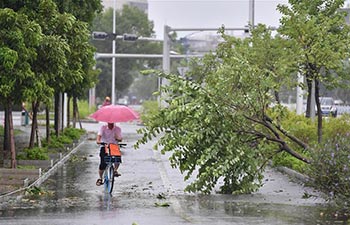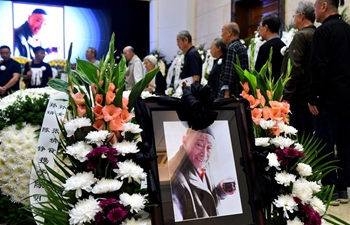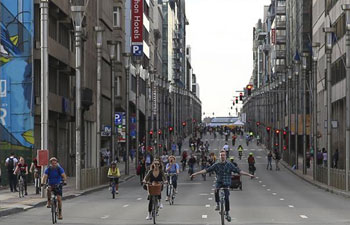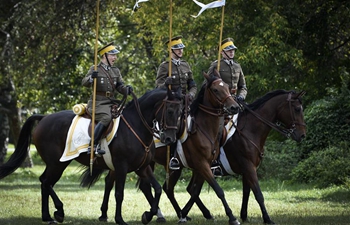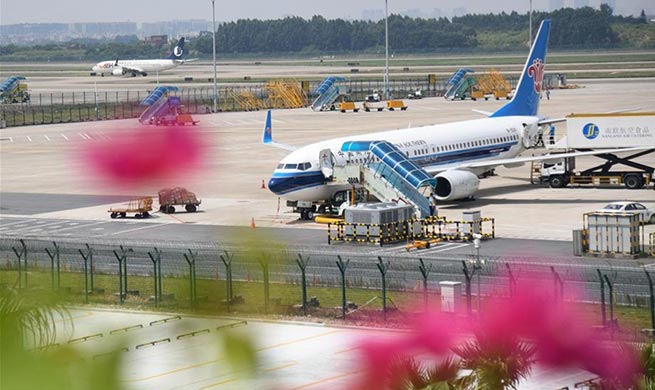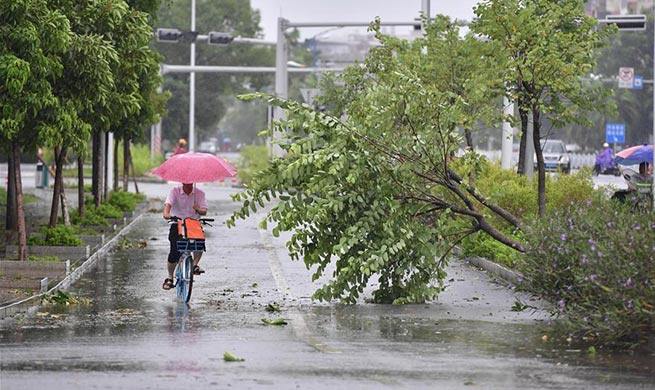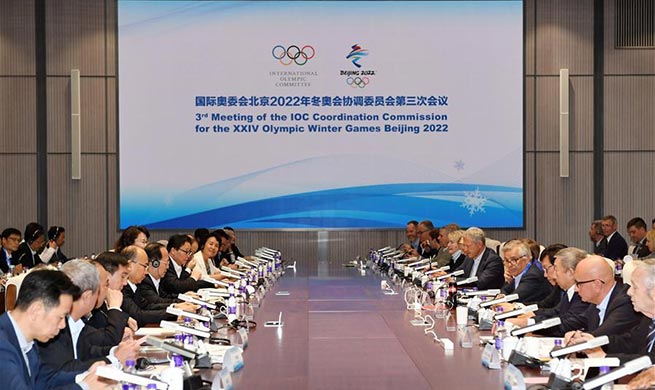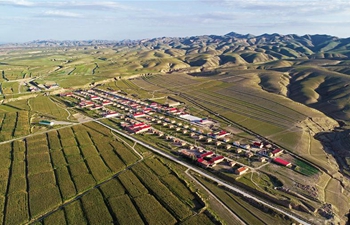DAMASCUS, Sept. 17 (Xinhua) -- The Russian-Turkish agreement to establish a demilitarized zone in the last major stronghold in the Syrian province of Idlib won't be a permanent solution, analysts said.
The deal of establishing a buffer zone between the positions of the Syrian government forces and the rebels in Idlib was declared after a summit between the leaders of Russia and Turkey, who met in the Russian resort city of Sochi on Monday.
During a joint press conference with his Turkish counterpart Recep Tayyip Erdogan, Russian President Vladimir Putin said that the demilitarization zone will be established by Oct. 15. It will be created along the contact line of the armed opposition and the government forces with a depth of 15-20 km.
The radical rebels will withdraw from the demilitarized zone along with heavy weapons.
The deal was a surprising one as it came days after the leaders of Iran, Russia, and Turkey held tripartite summit in Tehran during which the Iranian and Russian leaders rebuffed a Turkish call for a cease-fire in Idlib.
Iranian and Russian leaders backed a military offensive by the Syrian army to retake Idlib where al-Qaida-linked Nusra Front is located.
At the Tehran summit, Erdogan called on the rebels to turn in their weapons after his cease-fire proposal was turned down.
Later on, the Syrian army continued to send reinforcement to the frontline in Idlib, as part of the preparations that have been ongoing for a couple of months.
Airstrikes by the Russian and Syrian side had stopped over the past few days but the ground shelling continued.
Opposition activists said the Turkish side was attempting to put pressure on the al-Qaida-linked groups ahead of the anticipated offensive by sending in military backup to Turkey-backed rebels in Idlib.
But on Monday, Russian Defense Minister Sergei Shoigu said that the anticipated military offensive in Idlib was not on the agenda anymore.
Osama Danura, a Syrian political expert, told Xinhua that establishing a demilitarized zone in Idlib is not going to be permanent.
"I think that the solutions that prolong the de-escalation zones' concept in Idlib are practically temporary and are not comprehensive or permanent," he said.
He added the formula that was agreed upon by the leaders of Turkey and Russia would only postpone the confrontation between the Syrian army and the rebels and would give the Turkish side time to deal with the issue of the ultra-radical rebels in Idlib.
Danura stressed that the Syrian government will not accept to live with "terrorists" in Idlib, noting that the situation there cannot move on like this for a long time.
Hmaidi Abdullah, another analyst, said under the deal, the Turkish side has a big responsibility to put the rebels on a leash in Idlib.
He said that putting the Idlib battle on hold would give the Syrian army a chance to jump to the next phase, the illegitimate presence of the U.S.-backed forces in northeastern Syria.
His remarks came as Russian media reported that negotiations were underway between the Russian and the U.S. armies on the latter's withdrawal from the al-Tanf area in southeastern Syria.
Maher Ihsan, another analyst, said that the deal averted Idlib a wide-scale offensive and ensured that the rebels would not dare to attack Syrian military sites.
"It would also strip the Western countries of pretext to strike Syria," he said, as the U.S. and its Western backers were talking about having information that the Syrian army was planning a chemical attack in Idlib.
The Syria side and its allies slammed the Western claims, saying the United States was plotting with the rebels to stage such an attack to justify another foreign attack on the Syrian army.




